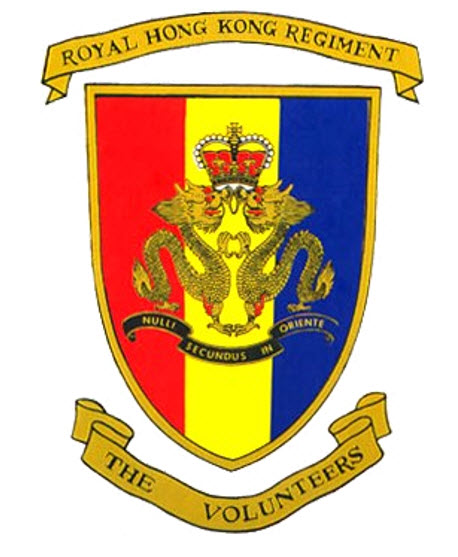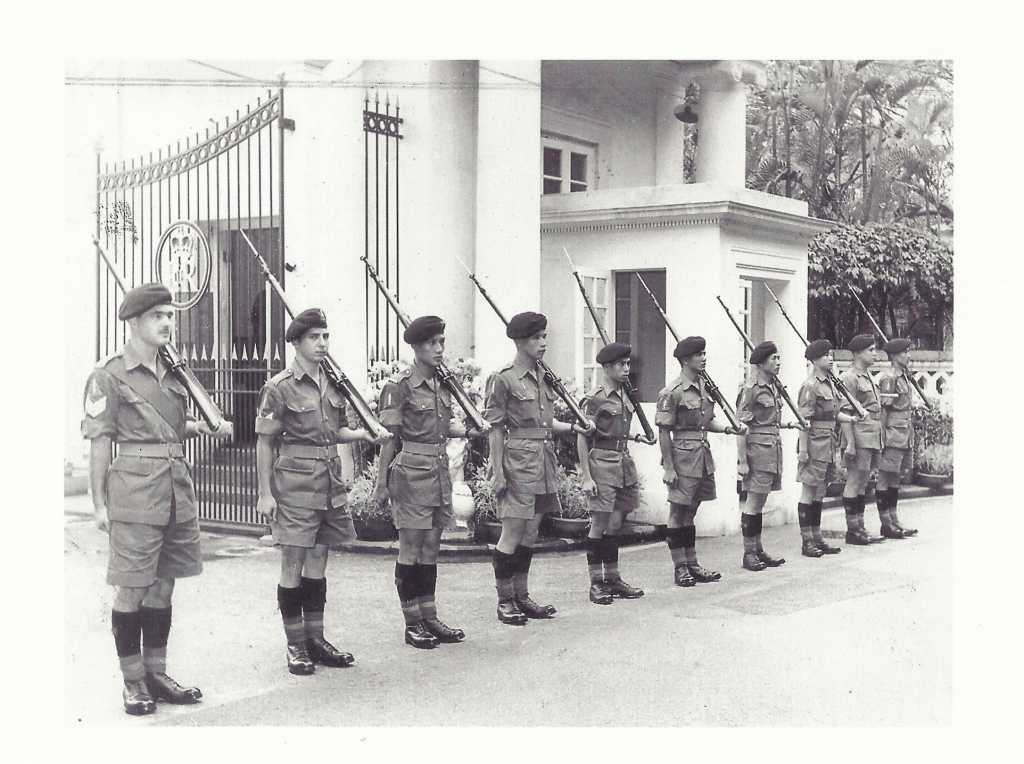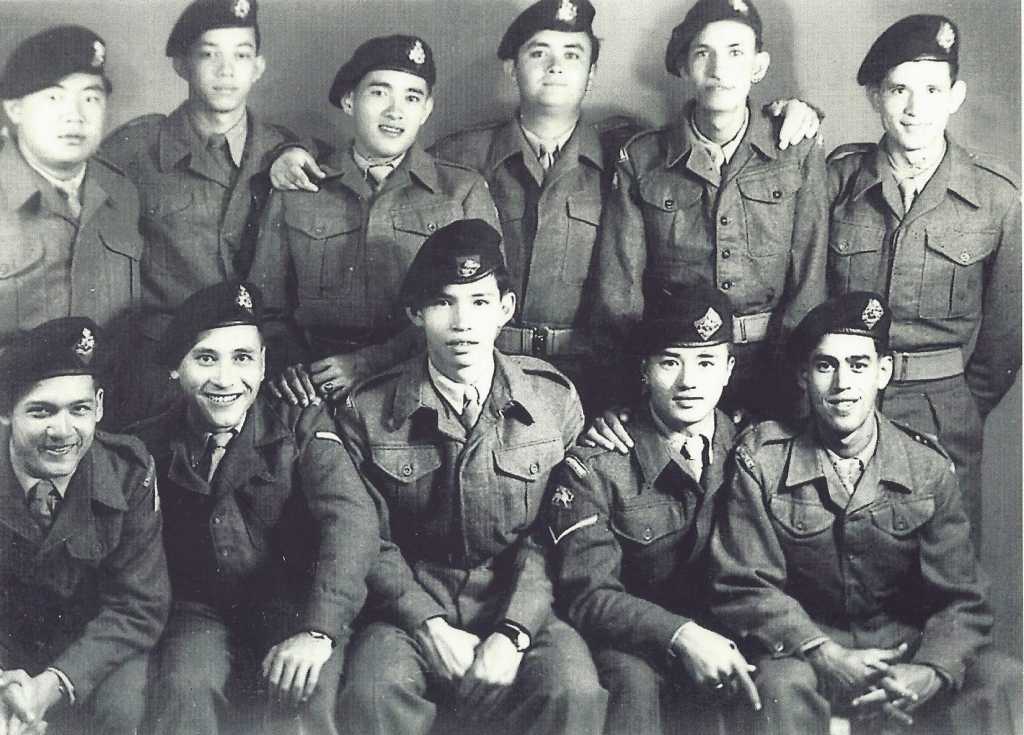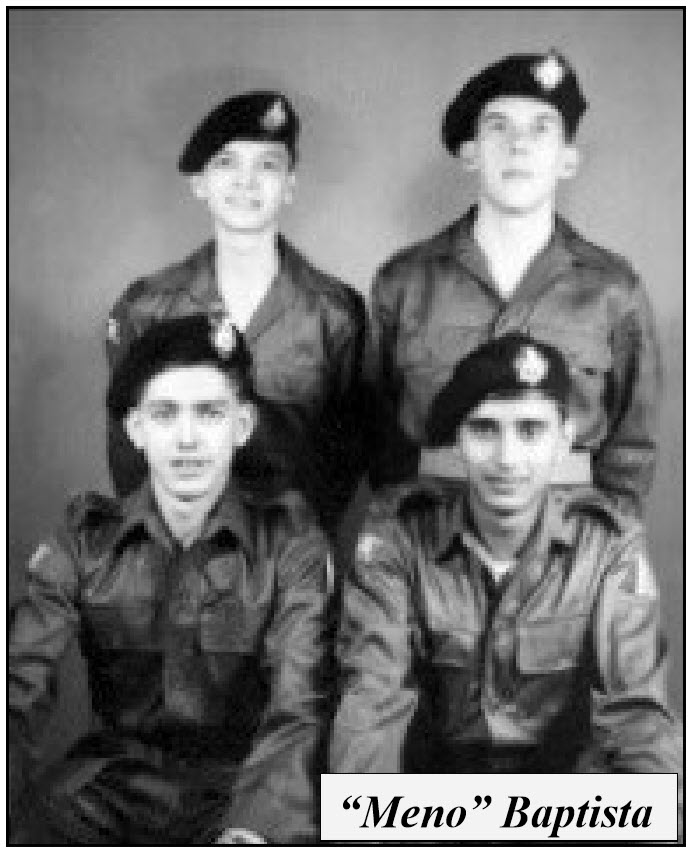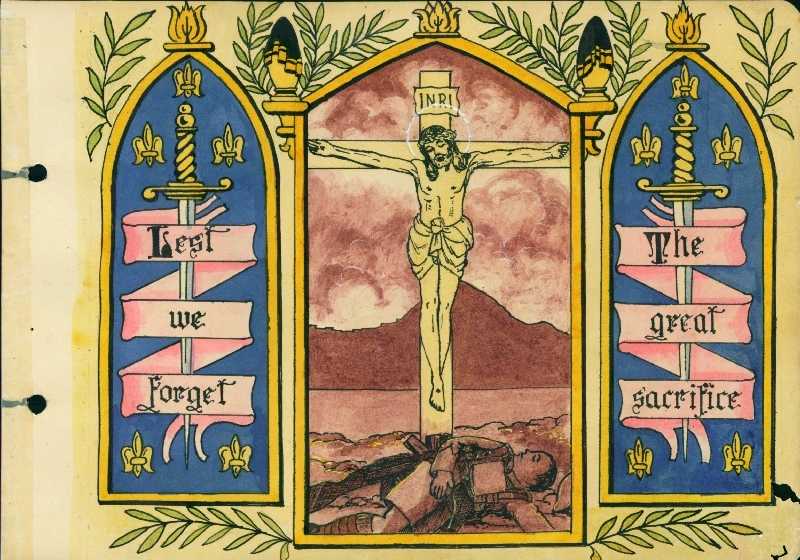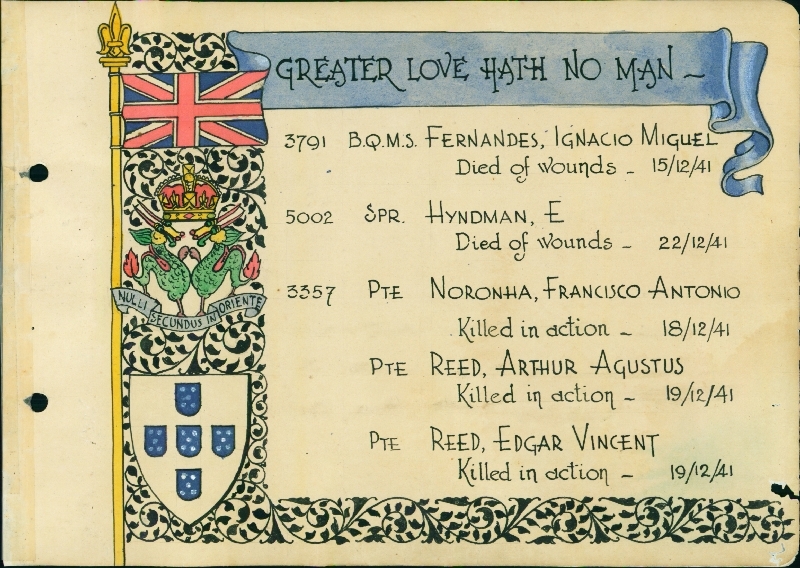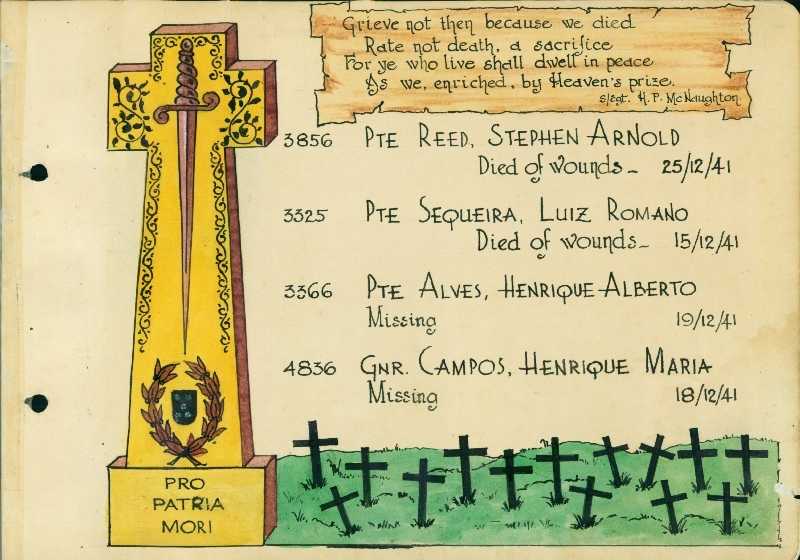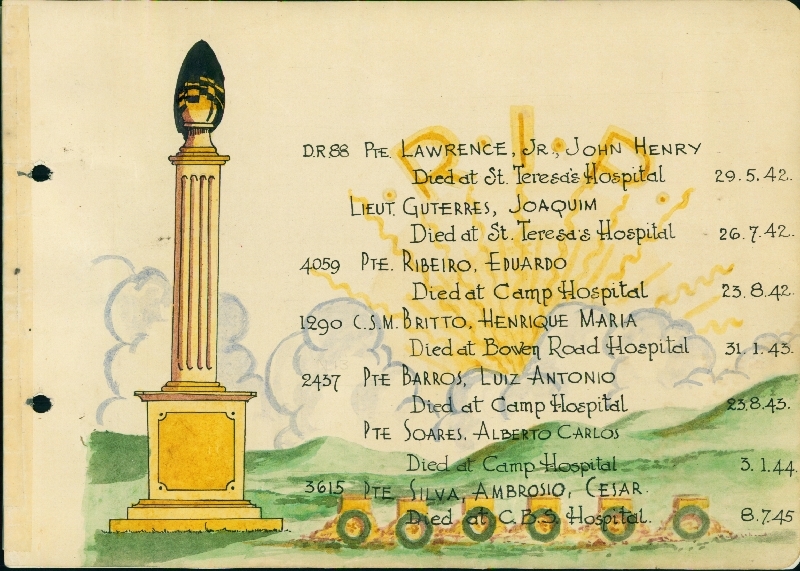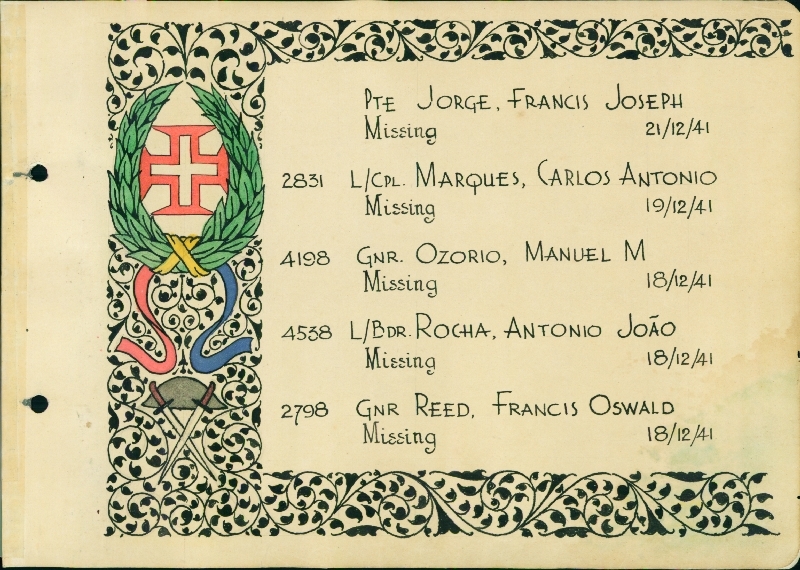The Royal Hong Kong Regiment (The Volunteers)
by Filomeno BaptistaClick on the SEARCH Icon and enter his ID number (29481) to be taken to his personal page
Originally published in the Bulletin of the Lusitano Club of California, Vol. 27 No. 1, Spring 2017
The War
Throughout November 1941 Japanese forces were active across the border. The political situation was grave when in early December the garrison including the Volunteers, were mobilized and by the night of the 6th all troops were in their battle positions.
Against an enemy force of over 30,000 men, the defenders stationed a Brigade in the mainland comprised of the 2nd Battalion Royal Scots, the 2/14 Punjabis and 5/7 Rajputs. There were also the Field Company Engineers of the HKVDC, who were responsible for the demolitions of road and railway from Fanling to Shatin, and their 7 armored cars, responsible for patrolling the Castle Peak Road area.
|
The Island was defended by the Volunteers comprising: four artillery and one AA battery, three rifle companies (No 3 Company was to achieve immortal glory), three machine gun companies (Nos 5 and 6 were Portuguese Companies), one anti-aircraft company; the 1st Battalion Middlesex, the 1st Battalion Royal Rifles of Canada and the 1st Battalion Winnipeg Grenadiers. Although vastly outnumbered and with no air cover, the defenders fought valiantly but by Christmas Eve it was apparent that further fighting would cause unnecessary death and suffering. On Christmas Day the defenders capitulated. |
With the exception of the 2 Indian Regiments who were shipped back to India, the defenders were interned in Kowloon, officers in Argyle Street Camp and other ranks in Sham Shui Po.
Although conditions were harsh prisoners managed to maintain high morale by keeping active. A highlight were musical plays produced by a group of very talented men and in spite of their weakened state many participated in all forms of sports.
In 1943 large detachment of prisoners including many Portuguese were shipped to work the coal mines in Japan.
The life of prisoners was a mixture of sadness, fear, boredom and hunger. Although the Japanese guards were less brutal than in camps such as those in Burma never the less life was unpleasant in the extreme. This harsh situation lasted for 3 years and 8 months. In the morning of August 15th 1945 the prisoners woke to a strange silence. It took them some time to realize that, according to my Uncle Naneli," there were no Japs in sight". The camp guards had disappeared. Later they were informed by the camp commandant that the War was over. Until the arrival of the British Fleet on August 30th, the prisoners had to provide security of the Camp.
On September 16th to a 21 gun salute the Japanese signed the surrender paper at Governor House.
After the surrender, most of our boys travelled to Macau onboard a British warship to rejoin their loved ones, returning home after a few weeks to seek employment and places to stay. In May 1946 a Company of Volunteers were invited to participate in the Victory Parade in England.
The Portuguese Volunteers who gave up their life in the battle of Hong Kong
They fought bravely and many gave their life defending Hong Kong.
Nulli Secundus in Oriente 1854-1995
(Second to None in the Orient, the motto of the Regiment).
